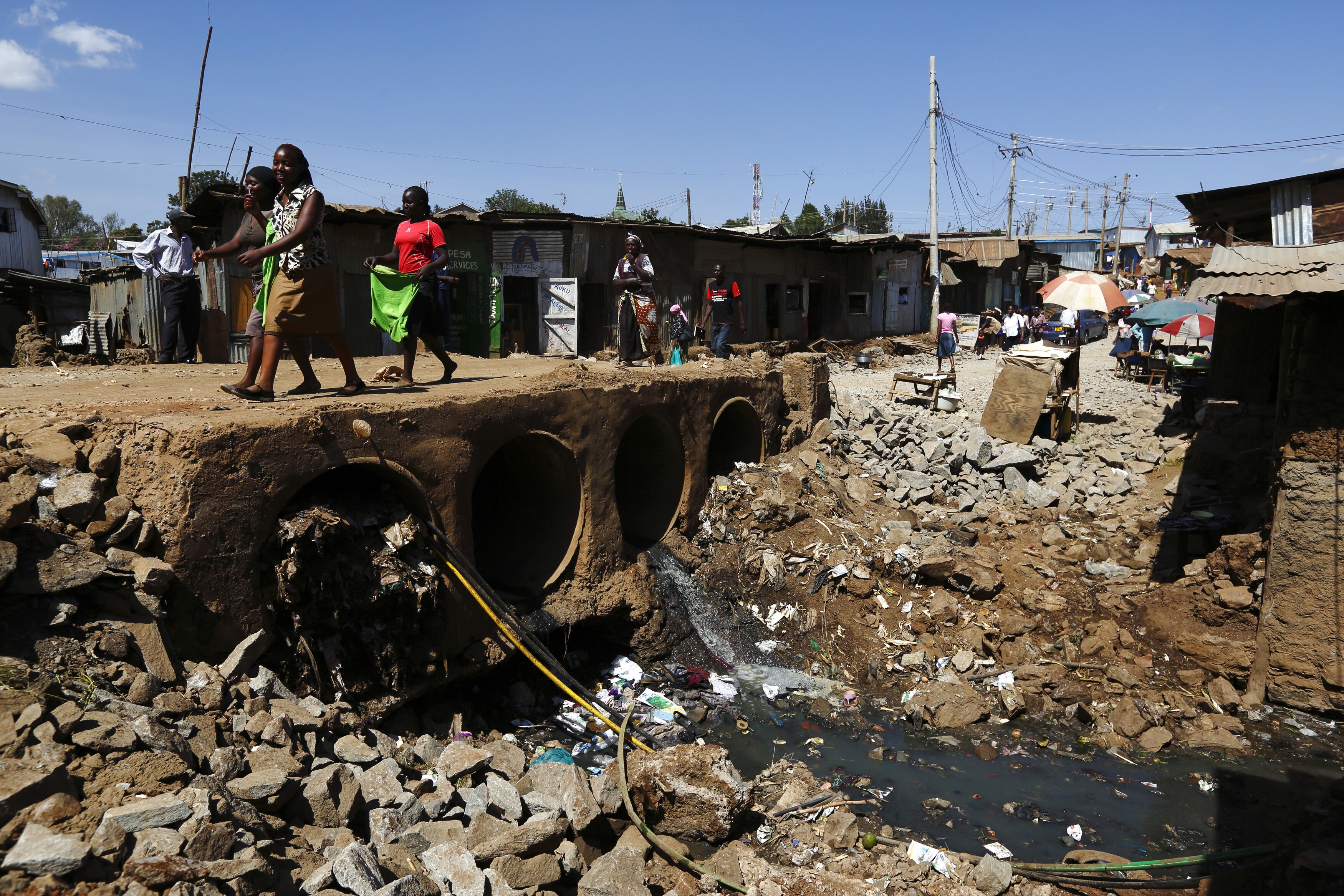This is the human impact of COVID-19 – and how business can help

How can we combat the fear of the unknown that COVID-19 amplifies?
Image: REUTERS/Kim Hong-ji TPX IMAGES OF THE DAY - RC2TQF9NHH4M
Stay up to date:
Global Health
- As business close to help prevent transmission of COVID-19, financial concerns and job losses are one of the first human impacts of the virus;
- Not knowing how this pandemic will play out also affects our economic, physical and mental well-being;
- Despite this fear, businesses and communities in many regions have shown a more altruistic response in the face of crisis – actions which could help countries preparing for COVID-19.
COVID-19 is in decline in China. There are now more new cases every day in Europe than there were in China at the epidemic’s peak and Italy has surpassed it as the country with the most deaths from the virus. It took 67 days to reach the first 100,000 confirmed cases worldwide, 11 days for this to increase to 200,000 and just four to reach 300,000 confirmed cases – a figure now exceeded.
In recent weeks, we have seen the significant economic impact of the coronavirus on financial markets and vulnerable industries such as manufacturing, tourism, hospitality and travel. Travel and tourism account for 10% of the global GDP and 50 million jobs are at risk worldwide. Global tourism, travel and hospitality companies closing down affects SMEs globally. This, in turn, affects many people, typically the least well-paid and those self-employed or working in informal environments in the gig economy or in part-time work with zero-hours contracts. Some governments have announced economic measures to safeguard jobs, guarantee wages and support the self-employed, but there is a lack of clarity in many countries about how these measures will be implemented and how people will manage a loss of income in the short-term.

Behind these statistics lie the human costs of the pandemic, from the deaths of friends and family to the physical effects of infection and the mental trauma and fear faced by almost everyone. Not knowing how this pandemic will play out affects our economic, physical and mental well-being against a backdrop of a world that, for many, is increasingly anxious, unhappy and lonely.
Fear of the unknown can often lead to feelings of panic, for example when people feel they are being denied life-saving protection or treatment or that they may run out of necessities, which can lead to panic buying. Psychological stress is often related to a sense of a lack of control in the face of uncertainty.
In all cases, lack of information or the wrong information, either provided inadvertently or maliciously, can amplify the effects. There is a huge amount of misleading information circulating online about COVID-19, from fake medical information to speculation about government responses. People are susceptible to social media posts from an apparently trustworthy source, often referred to as an “Uncle with a Masters”-post, possibly amplified and spread by “copypasta” posts, which share information by copying and pasting and make each new post look like an original source, as opposed to posts that are “liked” or “shared” or “retweeted”. The blend of half-truths and nonsense in these posts makes it hard for social media firms to filter them out.

Sadly, criminals and hackers are also exploiting this situation and there has been a significant rise in Coronavirus-themed malicious websites, with more than 16,000 new coronavirus-related domains registered since January 2020. Hackers are selling malware and hacking tools through COVID-19 discount codes on the darknet, many of which are aimed at accessing corporate data from home-workers’ laptops, which may not be as secure as outside an office environment.

Social distancing and lockdowns have also prompted altruistic behaviours, in part because of a sense that “we’re all in this together”. Many people report being bored or concerned about putting on weight; others have discovered a slower pace of life and by not going out and socializing have found more time for family, others and even their pets.
The downside of self-isolation or social lockdown are symptoms of traumatic stress, confusion and anger, all of which are exacerbated by fear of infection, having limited access to supplies of necessities, inadequate information or the experience of economic loss or stigma. This stress and anxiety can lead to increased alcohol consumption, as well as an increase in domestic and family violence. In Jingzhou, a town near Wuhan in Hubei province, reports of domestic violence during the lockdown in February 2020 were more than triple the number reported in February 2019.
What is the World Economic Forum doing about the coronavirus outbreak?
Social distancing and the closure of schools and childcare to combat the spread of coronavirus create additional pressures on working parents, especially as traditional sources of childcare are typically grandparents, many of whom will be in the most vulnerable groups. It is easier to respond positively when there are public appeals to protect the elderly or vulnerable in society, rather than by coercive state action.
Health measures must be the first priority for governments, business and society. It is important for businesses to show solidarity and work together to protect staff, local communities and customers, as well as keeping supply chains, manufacturing and logistics working. According to research, “my employer” is more trusted than the government or media. Daily updates on a company website with input from scientists and experts are recommended to counter politicized messages in the media and from governments. This is particularly true for large companies that have the capacity to do this.
Messages about what businesses are doing for their employees and in their communities is also important. Some companies are helping schoolchildren from vulnerable families who can no longer get a school meal; others are providing public health messages about effective handwashing. Even CEOs can show they are working from home and self-isolating, while still being effective in their leadership.

Following WHO advice, there is a need for the business community to move from general support to specific actions and focus on countries’ access to critical supplies, including a “Community Package of Critical Items” (a list of 46 items that all countries need). Of these items, 20 are either not available locally or available stocks are too limited. These missing items fall into four categories:
- Hygiene: Chlorine, HTH 70%, alcohol based hand rub, liquid soap;
- Diagnostics: lab screening tests, lab confirmation tests, enzymes, RNA extraction kits;
- PPE: gowns, scrubs, aprons, sterile gloves, protective goggles, face shields, masks (N95 or FFP2);
- Case management equipment: oxygen concentrators, oxygen delivery systems, mechanical ventilators.
The call for action is for more money, to work with manufacturers to create capacity and to organize purchasing so there is guaranteed access, especially for poorer countries with less resilient public health systems. The concept is to create a global security stockpile of supplies and equipment, an effort that needs:
- Emergency financing;
- Access to and increases in manufacturing capacity;
- Access to national and supplier stockpiles;
- Warehouses and distribution capacity.
As Jeremy Farrar, Director of the Wellcome Trust, says: “We are all in this together, as this pandemic will affect our families, in every country. We will leave no-one behind.”
Don't miss any update on this topic
Create a free account and access your personalized content collection with our latest publications and analyses.
License and Republishing
World Economic Forum articles may be republished in accordance with the Creative Commons Attribution-NonCommercial-NoDerivatives 4.0 International Public License, and in accordance with our Terms of Use.
The views expressed in this article are those of the author alone and not the World Economic Forum.
Forum Stories newsletter
Bringing you weekly curated insights and analysis on the global issues that matter.
More on Health and Healthcare SystemsSee all
Shyam Bishen
August 28, 2025
Ridwan Sorunke and Alyse Schrecongost
August 25, 2025
Shiloh Paswani and Mansoor Aamir
August 14, 2025
James Balzer
August 14, 2025
Madeleine North
August 13, 2025
Charlotte Edmond
August 11, 2025





